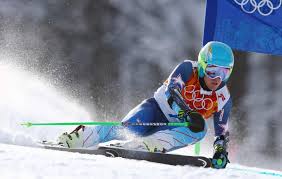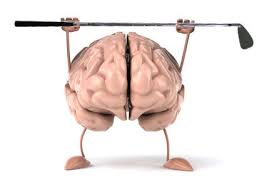By Paul Monahan, GGA Mental Game Coach
By Paul Monahan –
Graves Golf Performance Mindset Coach.
Ted Ligety was among the favorites to win gold in the Giant Slalom this year at the Olympics in Pyeongchang. Having won gold in 2006 in Turin, and again in 2014 at the Sochi Games in 2014, along with world championship titles in 2011, 2013, and 2015, Ligety is known as the King of the Giant Slalom.

But in 2018, there would be no gold medal in Pyeongchang. After a slow first run, Ligety finished the event tied for 15th…far out of the medal standings and a very long way from a gold medal. And he didn’t perform well enough in his second run to move up in the standings.
I don’t think anyone would begrudge Ligety if he were to look for something or someone to blame. “I didn’t have the right equipment.” “The conditions were poor.” “The food in Pyeongchang was terrible.” “My coach didn’t prepare me right.”
But Ted Ligety didn’t say any of those things. In fact, I doubt he even though those things. Ligety only stepped up and took ownership of his results, saying:
“That first run was purely me not having the right approach and going hard enough and going straight and clean enough. That’s all on me. Nothing to blame but myself for that first run.”
And then he said this:
“The second run was a mini-step in the right direction, but not anywhere close to the giant leap I needed to do anything. I tried to step it up a little bit more but didn’t have the speed in the legs today. So, that’s how it goes sometimes.”
I love that. And here’s why:
Ted Ligety knows who was responsible for his results on the hill. It was him. And he was not about to pretend that others (or other things) were to blame just so that he could save face or so that his pain of loss would hurt a little less.
So he stayed true to himself and was honest about his reality.
The highest achievers …athletes, leaders and performers don’t blame others when things go wrong. They seem just to know intuitively that their achievement depends first and foremost upon their actions.
How can this help your golf game?
I believe that any successful endeavor must include a responsibility mindset: a mindset that never blames others or on other things. It is a mindset that is rooted in the belief that we control our destiny and that our thought processes, decisions, and actions are what drive our success or achievements.
We all know someone who blames everyone else (or everything but themselves) for the things that happen to them.
They might even use language like: “He was talking about my backswing…that’s why I hit it in out of bounds.” “She didn’t pack my rain jacket, that’s why I lost the match.” “I missed the putt because these greens are terrible.”
Etc…etc…etc
While that person might believe that all these things are causational, the objective reality is much different.
If I were working with them as their coach, I would challenge their notion of cause and effect …and would help them to understand what was going on. I would point out to them:
You hit it out of bounds because you did not deliver the clubhead squarely to the ball.
You lost the match because your opponent scored more points than you.
You missed the putt because you misread the break.
Why is knowing this important?
Because the sooner you can see your reality more objectively, the sooner you can develop the skills that allow you to perform better. (Like, squaring the clubhead to the ball more regularly, scoring more points in your matches, and reading brakes more efficiently.)
I encourage my clients to learn how to tell the difference between what is TRUE for them versus what is THE TRUTH (objective reality.)
Once they get better at seeing the TRUTH, their mental and emotional dynamics change for the better, and they can work more productively toward their desired goals: more fairways hit, more greens run in regulation, fewer putts per round…etc.
Operating from blame is a trap it limits our potential at any moment.
Operating from objectivity…when we are not weighed down by judgment or our story is liberating.
Free yourself. Be responsible. Stop blaming. Period.
To see more about upcoming Graves Golf Mental Game / On Course Instruction: CLICK HERE
Paul Monahan, PCC , Graves Golf Mental Game Coach, s a Peak-Performance coach, member of the International Coach Federation and a certified COR.E Performance Dynamics Specialist. He resides in Cleveland, Ohio with his wife Paula and is the proud dad of three young men. He works with elite-level performers and leaders, helping them to expand their awareness so that they perform at their best more consistently.


